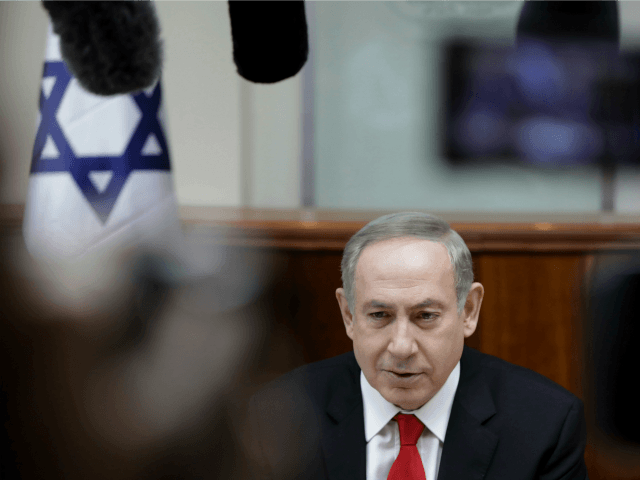JERUSALEM (AFP) – Israeli Prime Minister Benjamin Netanyahu said Tuesday he was not seeking an “escalation” in the Gaza Strip after his government moved to reduce electricity supplies to the Hamas-run enclave.
Israel’s security cabinet decided on Sunday to reduce the daily amount of electricity supplied to Gaza by between 45 and 60 minutes, Israeli media reported.
Gazans currently receive only three or four hours of electricity a day, delivered from the territory’s own power station and others in Israel and Egypt.
Israeli authorities said the move was taken after funding cuts by Palestinian president Mahmud Abbas, who has reportedly been seeking to further pressure his rivals in Islamist movement Hamas.
It has raised fears of a new upsurge in violence, with Israel and Palestinian militants in Gaza having fought three wars since 2008.
“Israel has no interest in an escalation and anyone who says otherwise is mistaken,” Netanyahu said at a public event on Tuesday.
He said the issue was related to an “internal Palestinian dispute”, adding that Abbas’s Palestinian Authority was refusing to pay for electricity provided to Gaza.
Israeli Public Security Minister Gilad Erdan said Monday that Abbas recently decided to “significantly reduce” payments.
“It would be illogical for Israel to pay part of the bill,” he said.
Hamas also said the cut was made on Abbas’s orders and termed it “a catastrophe”.
“This decision aggravates the situation and risks an explosion in the Gaza Strip,” it said in a statement on Monday.
Hamas has run Gaza since 2007, when it seized the territory in a near civil war from Abbas’s Fatah in a dispute over parliamentary elections won by the Islamist movement.
Abbas runs the Palestinian Authority (PA), the internationally recognised Palestinian leadership based in the occupied West Bank.
Multiple attempts at reconciliation between Hamas and Fatah have failed, but the PA had continued to pay Israel for some electricity delivered to Gaza.
Hamas is considered to be a terrorist group by Israel, the European Union and the United States.
The Gaza Strip is home to some two million people, more than three-quarters of whom depend on humanitarian aid.

COMMENTS
Please let us know if you're having issues with commenting.